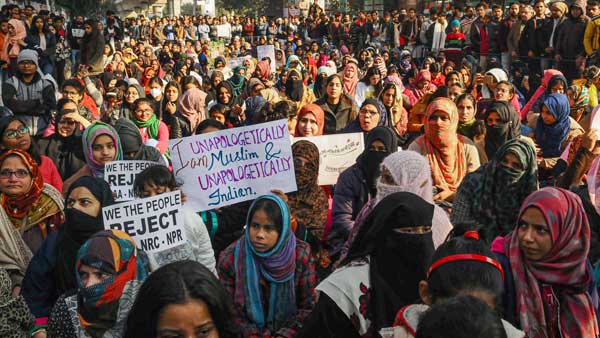 Islamic Radicalisation in Rajasthan: Public Sentiments and history of Muslim aggression
Islamic Radicalisation in Rajasthan: Public Sentiments and history of Muslim aggressionThe modules of Kerala, Tamil Nadu and Karnataka are inter-connected. These outfits are following a pattern of radicalising the mind of many rather than focus on terror strikes.
New Delhi, July 30: Coastal Karnataka has been in the news for all the wrong reasons of late. The anti-Citizenship Amendment Act protests got violent in the coast and tensions also soared due to the hijab row.
Now the murder of Praveen Nettar in the same belt has raised communal tensions. Another youth by the name Mohammad Fazil was murdered this week which has only added to the tensions.
Radicalisation in the coast is nothing new and there has been a sustained campaign over the past several years. The region has for long been communally charged and several radical elements have taken advantage of the situation and indoctrinated the youth of the region.
 Islamic Radicalisation in Rajasthan: Public Sentiments and history of Muslim aggression
Islamic Radicalisation in Rajasthan: Public Sentiments and history of Muslim aggression
In coastal Karnataka the Islamist radicals have deployed the Kerala model. Kerala was a laboratory for some of these radicals and they are using the same mode in several states including Karnataka.
They are trying to do in Karnataka what they did in Kerala over the years. The extent of radicalisation in coastal Karnataka is evident from the National Investigation Agency's findings in connection with an Islamic State case.
In this case a girl from Coorg, Karnataka converted herself to Islam, married a Muslim and went on a radicalising and recruiting spree, the NIA said in its case. The NIA said that one Mohammad Ameen from Kerala was running several ISIS propaganda channels. In these channels, the new way of life to be followed, prescribing compulsory hijab and indulging in violent Jihad would be propagated.
In the same case, the girl from Coorg, Deepti Marla who went on to become Maryam was also arrested.
The NIA said that she had honey-trapped and then converted 10 Hindu youth to Islam. Once they were converted to Islam, she would force them to join the ISIS. Maryam was arrested from Ullal in Coastal Karnataka. Another person to be arrested from Ullal in the same case is Ammar Abdul Rahman.
 CAA does not deprive any Indian of citizenship: MHA
CAA does not deprive any Indian of citizenship: MHA
An official tells OneIndia that the modules of Kerala, Tamil Nadu and Karnataka are inter-connected. These outfits are following a pattern of radicalising the mind of many rather than focus on terror strikes. They strike terror in the form of killing Hindu leaders who have on many occasions questioned Islamic conversions.
Another official explains that the proximity of Kasargod to coastal Karnataka is also part of the problem. Kasargod has several radical elements who keep paying a visit to the coast and carry out their agenda.
In April Rishad Bathiudeen, a top Muslim leader and member of parliament from Sri Lanka, was arrested in connection with the 2019 Easter Bombings. It was learnt that Rishad had visited Kasargod in 2009. The agencies are probing into his possible links with some religious fanatics in the region.
Following the arrest of Rishad and his brother, it was learnt that their father hailed from Padna in Kasargod and he had been in touch with some persons in the region. The ISIS link in Kasargod becomes important as five Muslims families had left for Syria from Padna in 2016 to join the outfit. It was also learnt that these persons had been to the Thowheed Jamaat in Sri Lanka, where they underwent religious training.